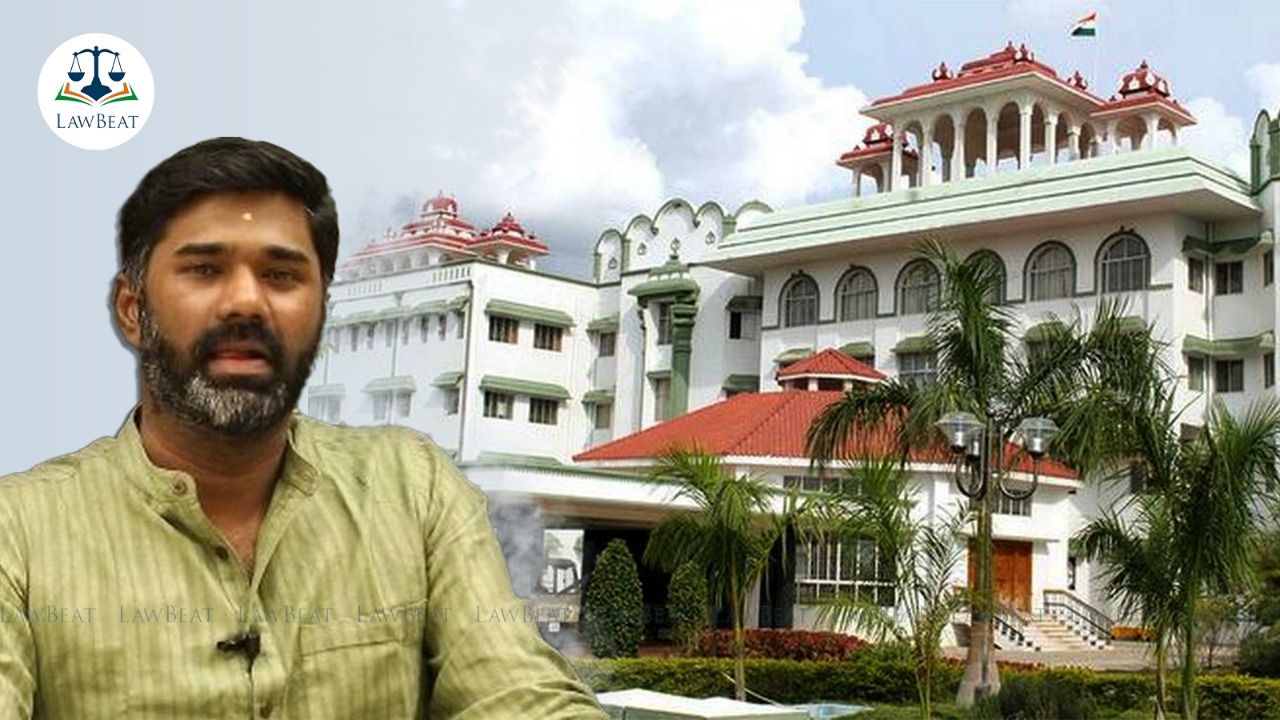"'Youtuber' regularly commenting on public affairs entitled to same rights as journalist": Madras High Court quashes FIR against Youtuber Maridhas

The Madurai bench of the Madras High Court has quashed an FIR registered against YouTuber Maridhas, who was imprisoned over a tweet saying that "Tamil Nadu is becoming into another Kashmir under DMK administration."
Passing the order on a petition filed by Maridhas, Justice GR Swaminathan observed, “A ‘YouTuber’ or any social media personality regularly commenting on public affairs would also be entitled to the very same rights which are accorded to journalists and the media under Article 19(1)(a) — Right to Freedom of Speech and Expression—of the Constitution.”
Maridhas is a well known political commentator in the social media, running his own 'Youtube' channel. Upon the demise of Gen. Bipin Rawat, Maridhas called out the people who were greeted the news and identified them as belonging to 'Dravidar Kazhagam' and 'Dravida Munnetra Kazhagam'.
Maridhas tweeted observing whether Tamil Nadu under DMK rule was becoming another Kashmir. He expressed his apprehension that if the environment is conducive to breed such anti-national groups, then, there is a possibility of any conspiracy of humongous proportions being hatched. He demanded that the secessionist forces should be suppressed.
The District Coordinator of the IT Wing of DMK then lodged a complaint against Maridhas.
Maridhas contended that the tweet was more an agonised response of a true nationalist. He could not bear to see celebrations and overt expressions of joy from some quarters in Tamil Nadu following the tragic event. As a regular commentator on current events, he expressed his apprehension that separatism was rearing its ugly head in the state of Tamil Nadu.
He further submitted that he had taken down his tweet within a couple of hours. However, he that he is entitled to freedom of speech and expression guaranteed under Article 19(1)(a) of the Constitution of India.
On the other hand, Additional Advocate General (AAG) appearing for the state contended that Maridhas cannot claim protection under Article 19(1)(a) of the Constitution because the right to freedom of speech and expression is not an absolute right and that it is very much subject to reasonable restrictions set out under Article 19(2) of the Constitution.
The AAG further said the tweet would be considered “hate speech” according to the law laid down in Amish Devgan Vs. Union of India and others as Maridhas lacks good faith and bona fides. That his remarks cannot be said to constitute fair comment and had a mischievous and malicious intention to provoke his online followers.
The Court observed that to attract the offence of Section 504 IPC, the accused must intentionally communicate an abuse or insult directly to the victim. In this case, Madhiras had sent a tweet which was meant for the consumption of his followers at large. Section 504 of IPC is intended to cover only one to one interactions and not a case of this nature.
“Section 504 of IPC was intended to cover personal and one-to-one insults which may give rise to possible breach of peace. Of-course, it is not necessary that provocation must have a breach of peace. The case on hand is clearly not one such and invocation of Section 504 of IPC is unwarranted,” the Court observed.
The Court further stated that Section 505 (1)(b) of IPC will not be attracted. The Court observed that the Section can be invoked only if the act of the person concerned would lead anyone to commit an offence against the state or against public tranquillity, which Patra’s tweet does not do.
“Holistic reading of the petitioner's tweet clearly indicates that the petitioner wants the State to use its might to ensure that there is public tranquillity. No follower of the petitioner would act against the State when the petitioner is batting for the State,” the Court stated.
Talking about charges under section Section 153 A and Section 505(2) of IPC the Court said the sections are not attracted since there is no reference to religion, race, place of birth, residence, language, caste or community.
For charges under Section 124A, the Court said Maridhas's tweet is not seditious. They were never intended to subvert the Government. On the contrary, it calls for strengthening the foundations of government.
“By no stretch of imagination can the petitioner be said to have harmed the national interests. The petitioner had only drawn the attention of the State government to certain nefarious tendencies brewing in the State.”
The Court further held that a 'Youtuber' or any social media personality regularly commenting on public affairs would be entitled to the very same rights which are accorded to journalists and the media under Article 19(1)(a) of the Constitution.
Referencing Nobel Laureate Pamuki, the Court stated Maridhas have made a “naive” Tweet in the Pamukian sense. Probably realising it, he took it down. The State can step in only if the petitioner's act falls foul of law and not otherwise.
Justice Swaminathan quashed the FIR stating that the FIR itself is illegal and comical.
“Before concluding, I cannot resist commenting on a comical feature of the impugned complaint. The defacto complainant had stated that as a result of the offending tweet, there will be hatred and enmity between the DMK partymen and the separatists. Maridoss may call it a Freudian slip. I will not be so uncharitable. The de-facto complainant must have drafted his complaint in a hurry for reasons best known to him,” the Court stated.
